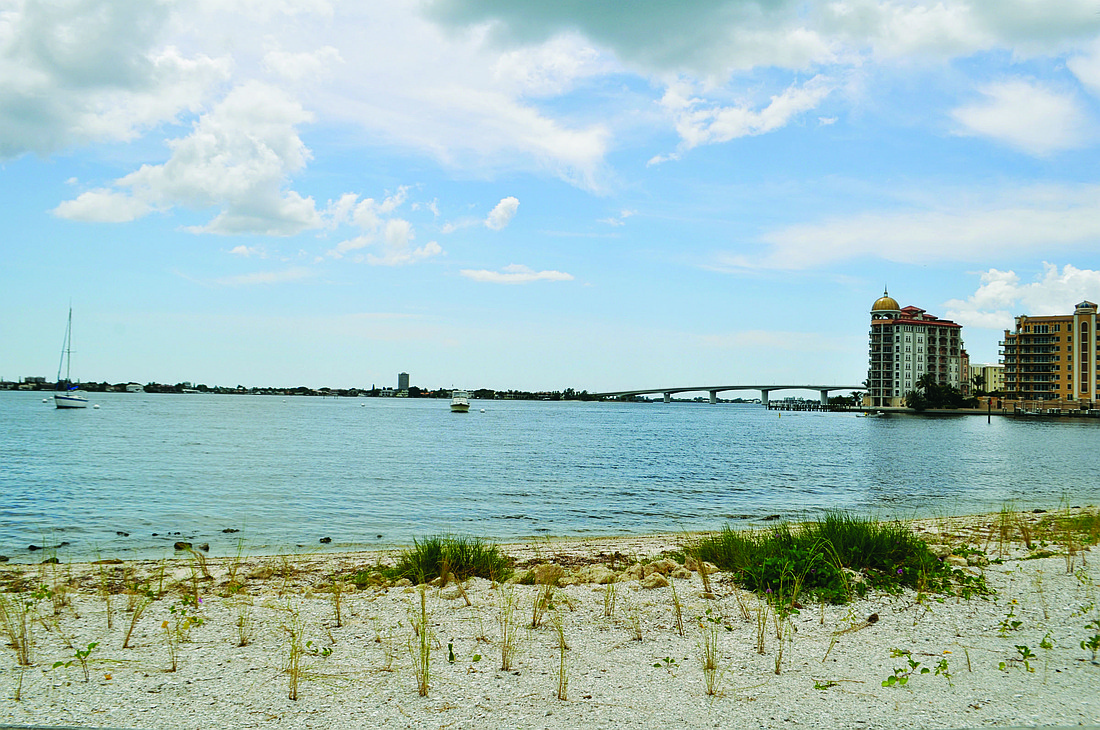- November 26, 2024
-
-
Loading

Loading

The city of Sarasota and the Sarasota Bay Estuary Program (SBEP) have completed work on a new project on the bayfront, but it may be awhile before you can see the results.
Last week, work was completed on a 500-foot stretch of “living shoreline” at Bayfront Park. The project, which Southwest Florida Water Management District is funding, seeks to establish a natural alternative to hardened seawalls.
By installing the living shoreline, which features 150 feet of Florida-native plants, the groups hope to continue to protect the coast while also providing a habitat for plants and animals along the bayfront. For now, though, the plants are still flowering — meaning the living shoreline isn’t as impressive as its architects hope it eventually will be, according to SBEP staff scientist Jay Leverone.
The area will be roped off until the plants have time to grow, Leverone said. At that point, a sign describing the purpose of a living shoreline will be installed in the area.
“We’re hoping that will be an attractive display for people strolling along the bayfront and an opportunity to provide educational information,” Leverone said.
Alison Albee, the city’s environmental specialist, described the living shoreline as a demonstration project — an example to show the public a living shoreline next to a hardened one. She said there is potential to expand to other locations, but nothing is planned at the moment.
Leverone said a potential drawback of living shorelines is that they’re not ideal for areas that see high waves and storm surges. He said this could be a problem at the site’s current location; Tropical Storm Debby delayed the initial installation of the living shoreline when sidewalks in the area were destroyed.
If the living shoreline is harmed by adverse conditions, Albee said it’s not the end of the world because the site is more for educational purposes.
“It is not intended to be a fully engineered example, but primarily a visual demonstration,” Albee said.
The SBEP will continue to try to establish living shorelines in appropriate areas where constructed seawalls are deteriorating and in need of being replaced. This is the organization’s second living-shoreline project in the region; in 2011, a living shoreline was constructed at Herb Dolan Park in Bradenton Beach.
There are several obstacles to overcome to establish those living shorelines, though. At least 70% of the shoreline in Sarasota Bay is occupied by a hardened structure, such as a seawall. Sarasota County regulations create an easy process for a seawall to be replaced by another seawall, Leverone said, but things are more difficult if you want to install something different.
Still, Leverone said he hopes this initial effort will help people see the value of living shorelines.
“We’re fighting an uphill battle, but we have an opportunity to demonstrate an aesthetic shoreline with some habitat benefits for people to consider,” Leverone said.
Contact David Conway at [email protected].